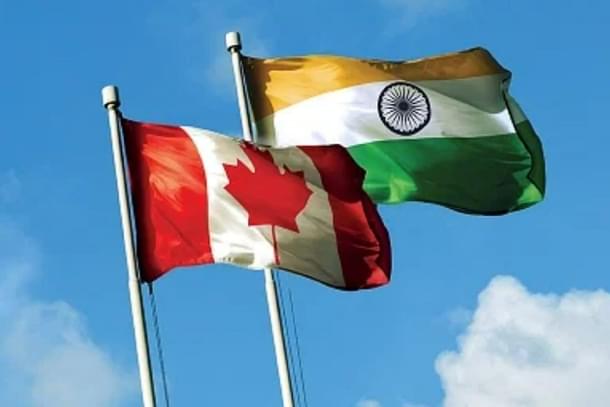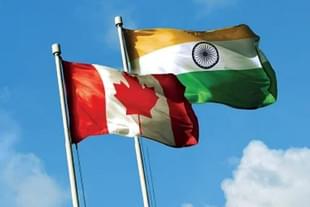News Brief
India Partially Restores Visa Services In Canada, Month After Diplomatic Tensions Escalated
Nishtha Anushree
Oct 26, 2023, 08:36 AM | Updated 08:36 AM IST
Save & read from anywhere!
Bookmark stories for easy access on any device or the Swarajya app.


In an effort to ease tensions between India and Canada, Delhi has decided to restore visa services in certain categories, starting Thursday (26 October). This comes a month after India suspended Indian visa services in Canada and requested Ottawa to reduce its diplomatic presence in India.
The move was prompted by Canadian Prime Minister Justin Trudeau's allegation of a potential Indian link to the killing of a Canada-based Khalistan terrorist Hardeep Singh Nijjar, which caused a diplomatic firestorm between the two countries.
The High Commission of India in Ottawa has announced that visa services will be resumed for certain categories after a careful review of the security situation, taking into account recent measures implemented by Canada.
The categories that will be eligible for visa services include Entry visa, Business visa, Medical visa, and Conference visa. This move indicates a de-escalation of tensions between the two countries.
The entry visa is specifically for Canadian passport holders of Indian origin, while the business visa is intended for Canadian business travelers and investors in India. These visas have been reinstated due to the significant demand from Indian-origin Canadians who do not possess OCI cards, as well as Canadian investors in India.
The medical visa is commonly utilised by Canadians of Indian origin seeking affordable emergency medical treatment. On the other hand, the conference visa is specifically designed for academics and think tanks.
Tourist visas for Canadian citizens have not yet been fully reinstated, according to an Indian government source quoted by Indian Express. While visa services have partially reopened, the situation has not returned to normal.
India's recent action is seen as a significant step towards reducing tensions. According to sources, although Ottawa has increased security measures for Indian diplomats, the situation has not fully returned to normal.
The High Commission and Consulates General will continue to handle emergency situations as they are currently doing. Further decisions will be made based on ongoing evaluation of the situation and will be communicated accordingly.
India's announcement of resuming visa services for Canadians came just three days after External Affairs Minister S Jaishankar expressed that they would consider doing so "very soon" if there is improvement in the safety of Indian diplomats in Canada.
India's temporary halt on visa services was primarily due to concerns about the safety and security of its diplomats in Canada, according to Jaishankar. He stated that Ottawa's failure to provide a secure environment for Indian officials posed a significant challenge to the fundamental principles outlined in the Vienna Convention on Diplomatic Relations.
The decision by the Indian government to restart visa services is seen as a possible opportunity to mend relations, even though Prime Minister Trudeau and his government have not retracted their accusation, which Delhi considers to be unfounded and politically motivated.
Delhi's justification for reducing Canada's diplomatic presence, based on parity and the Vienna Convention, has not been supported by the US, UK, Australia, and New Zealand. These countries are all part of the Five Eyes alliance, which focuses on gathering and sharing intelligence.
Delhi dismissed Canada's claim that implementing parity was a breach of international norms and accused Canadian diplomats of meddling in India's domestic matters.
Nishtha Anushree is Senior Sub-editor at Swarajya. She tweets at @nishthaanushree.





